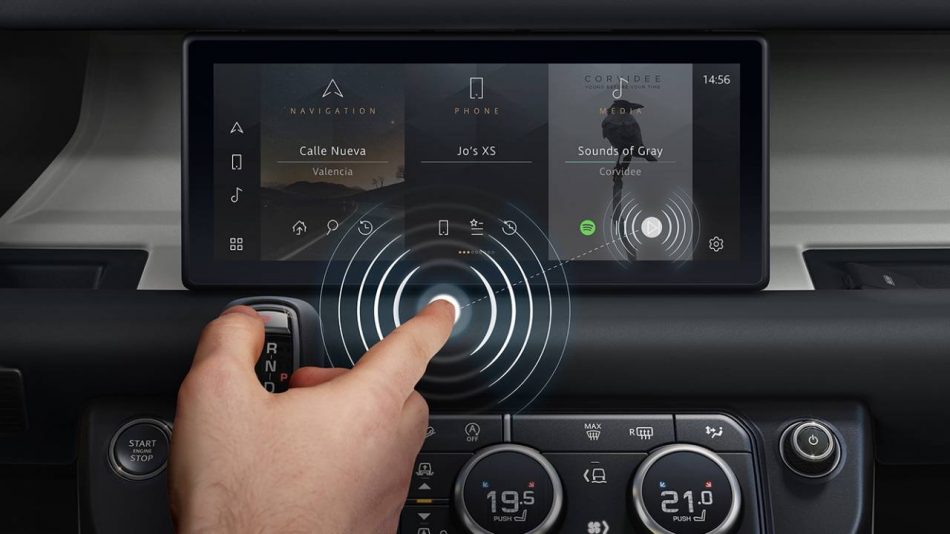More and more passenger cars have touchscreen technology to control entertainment, navigation, or temperature control systems. The problem is that users can often miss the correct item—for example, due to acceleration or vibrations from road conditions—and have to reselect, meaning that their attention is taken off the road, increasing the risk of an accident.
In order to make this in-car technology safer, engineers from the University of Cambridge and Jaguar Land Rover have developed a novel “no-touch” touchscreen that uses AI to predict where a user is aiming before they make contact with a screen. It uses a variety of sensors to determine user intent in environments where, due to bumpy roads and mechanical vibrations, it can be difficult to actually touch a screen with accuracy.
While this could be great for improving road safety, the arrival of a “no-touch” touchscreen couldn’t have come at a better time. We use touchscreens in a variety of everyday devices ranging from ATMs and keypad entry systems to the microwave or cappuccino machine at our local gas station. If we can eliminate the need to “touch” these devices, it could go a long way towards flattening the coronavirus curve and even helping to fight the common cold and influenza.











